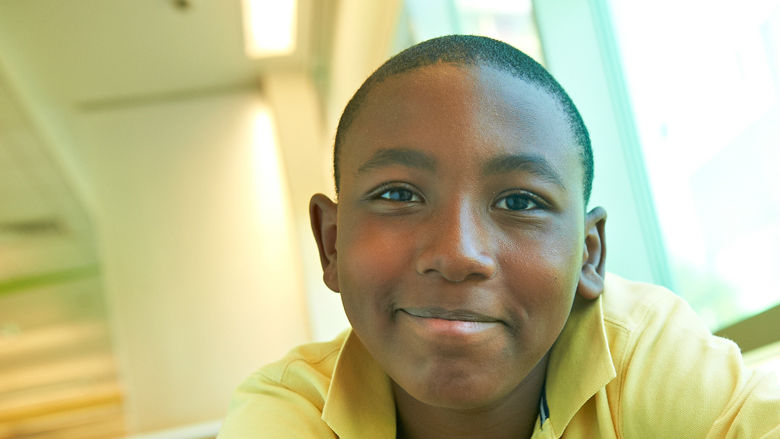Moyamoya Disease
What is moyamoya disease?
Moyamoya disease and moyamoya syndrome are rare but serious diseases in which the two major arteries in the front of the neck (the carotid arteries) progressively narrow. This narrowing occurs over the course of months and years, typically beginning in childhood.
The carotid arteries supply oxygen-rich blood from the heart to the brain. As they narrow, blood flow to the brain is reduced and very serious symptoms can occur, including stroke.
The most common symptom that brings children to the doctor is a sudden loss of function that resembles a stroke, such as difficulty speaking or weakness of one side of the body. Sometimes these symptoms are short-lived, resolving over a matter of hours, and no tissue damage is evident on an MRI or CT scan. Doctors call this a transient ischemic attack (TIA).
Why Choose Us?
The Division of Neurosurgery at Children’s Hospital of Philadelphia specializes in the surgical treatment of infants, children and adolescents with brain tumors, epilepsy, cervical spinal trauma, and other conditions affecting the brain and spine.
Treatment for moyamoya disease
At Children’s Hospital of Philadelphia (CHOP), stroke and rehabilitation specialists from the dedicated Pediatric Stroke Program work in close partnership with the pediatric neurosurgery team to provide comprehensive care for children with moyamoya disease.
Emergency treatment for stroke in children with moyamoya disease
Immediate treatment is needed for all children with stroke no matter what the cause. At the earliest signs or symptoms of a stroke, such as paralysis of one side of the body or loss of speaking abilities, have your child lie flat and call 911 for immediate medical care and transport to the nearest emergency room.
Immediate treatment will focus on preventing the stroke from getting worse.
Medical treatment for stroke in children with moyamoya disease
After the initial diagnosis and treatment of stroke or TIA, children with moyamoya disease need a variety of medical and rehabilitation therapies. These therapies are focused on preventing another stroke from occurring, and helping your child recover function.
Most children with moyamoya disease who experience a stroke will be prescribed a lifelong aspirin regimen, taken once daily to help keep the narrowed blood vessels open. Rehabilitation services such as physical therapy, occupational therapy or speech therapy are another important part of treatment for most children who have experienced a stroke.
Surgery for moyamoya disease in children
A common treatment for moyamoya disease is an indirect bypass. Two common approaches used for this type of brain surgery include pial synangiosis and encephaloduroarteriosynangiosis (EDAS). During this operation, a surgeon creates a new delivery system to bring blood to the brain.
The neurosurgeon will assess the result of the surgery through an angiogram around 12 months after surgery.
Follow-up care
Children with moyamoya disease or moyamoya syndrome will receive coordinated follow-up care from the Pediatric Stroke Program team and the neurosurgery team. Your child’s follow-up care will be tailored to their individual needs and those of your family.

